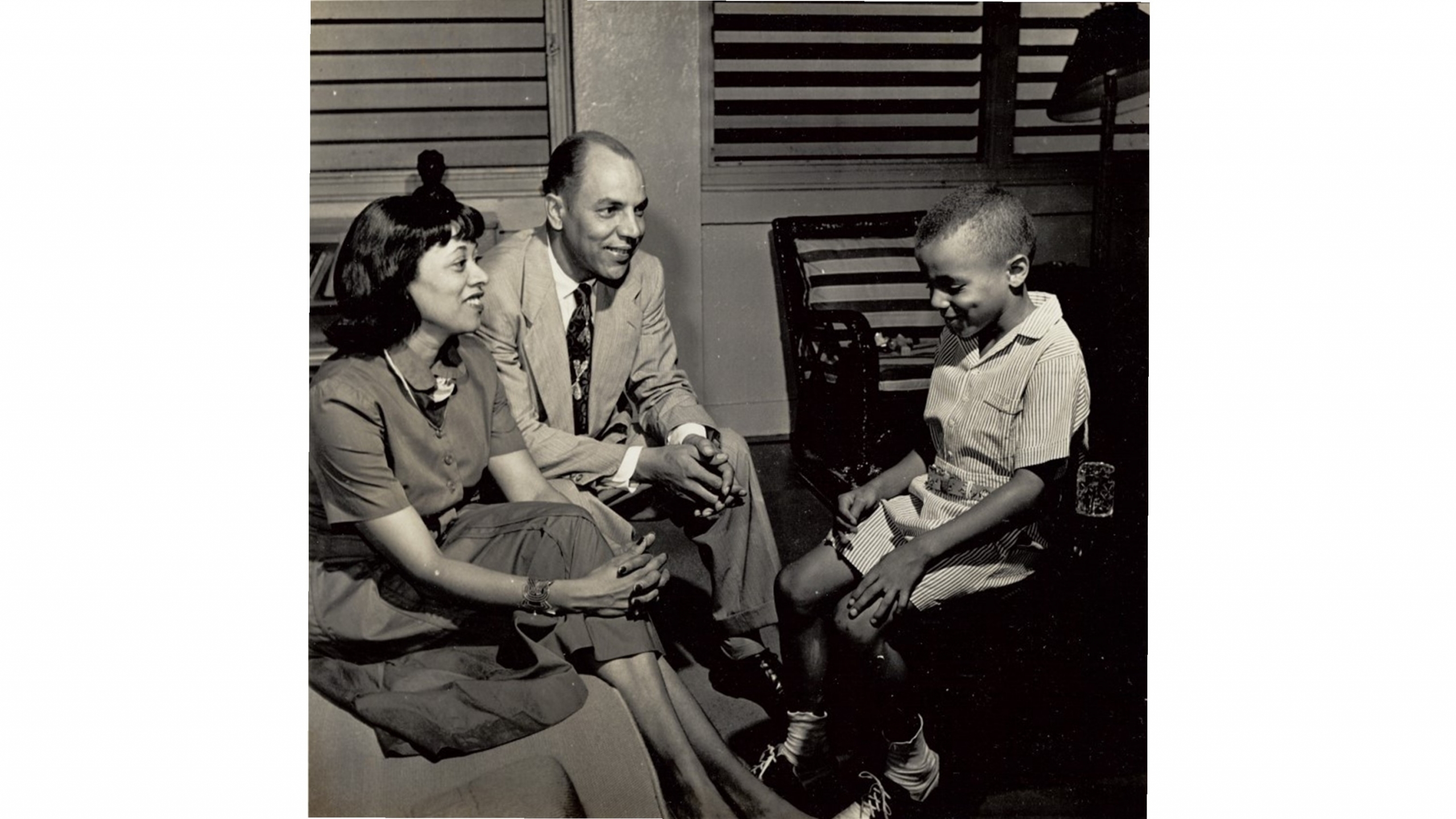In 2021, the Society is celebrating Black History Month every month, spending the year looking back at the impact of Black New Yorkers on the legal history of the state.
Prior to becoming a judge, in the early 1940’s, Edward R. Dudley was recruited by Thurgood Marshall, then Chief Counsel of the Legal Defense and Education Fund of the National Association for the Advancement of Colored People (NAACP), to become a Special Assistant Counsel at the Fund. In this period, before Brown v. Board of Education, the Judge worked on cases and wrote briefs seeking the admission of Black students to colleges in the south, equal pay for Black teachers, such as he had once been, and non-discriminatory public transportation. He also worked on voting rights cases. The NAACP developed a network of lawyers around the country who were willing to work on these cases. “[W]hen we got a case throughout the United States,” Judge Dudley said many years later, “we would call on these lawyers who were strategically placed, asked their help and they would give it. And this was the way we were able to handle far more than the number of cases that our office could handle itself.”
In the days before Brown, it was necessary to defend and advance the rights of the clients aggressively, but at the same time with judiciousness and care. Mr. Marshall was painfully aware that bringing a certain kind of challenge too early, before all the conditions for progress were ripe, could set the civil rights movement back 50 years.
One case Judge Dudley tried concerned a challenge brought on behalf of the custodian of a separate Black school who was receiving an annual salary of $1,500 while the person who filled the exact same position at a “separate but equal” school for whites received $3,000 per year. This case and others like it must have resonated deeply with the Judge given his background as a one-time teacher in Virginia. Individual cases, fact-specific challenges such as this, helped to lay the foundation for Brown and the progress that was to follow it.
When Judge Dudley first went to work with Mr. Marshall, they two were the entire complement of the legal staff at the Fund. The hours were long, the financial compensation modest, and the work was not without its dangers. Mr. Marshall has, of course, been heralded for his pioneering representations, and very properly so. As an important, very early member of Mr. Marshall’s team, Judge Dudley, too, is deserving of much credit for work that changed the country. That experience during his formative years as a lawyer must have exerted a considerable influence throughout Judge Dudley’s professional and personal life. Of course, afterward, others joined the staff of the NAACP Legal Defense and Education Fund, including Constance Baker Motley, Robert Carter, and Franklin Williams, and, later still, a young O. Peter Sherwood, who himself now graces our bench as a Justice of our Commercial Division.
On some issues, the Fund sought to achieve its objectives through voluntary concessions by adversaries. In many other instances, though, formal legal action was necessary. “Most of our other problems at that time we took to court,” Judge Dudley remembered, “and we were very successful in many of the suits that we brought.” Traveling in the South and representing the clients they did was perilous work. Often the team would find accommodations in the homes of local Black residents. One such family who put up the team in Georgia was that of William Hunter, who later followed the team back to New York City. Bill remained close friends with Justice Marshall for all of the years following and visited Justice Marshall in the latter’s home and later in his chambers at the United States Supreme Court. In time, Bill joined our court as Judge Dudley’s Administrative Aide. Bill had countless friends and admirers throughout our court and beyond.
After some years of work at the Fund, Judge Dudley’s career changed course again. Learn more about Judge Dudley’s career, including his service as Ambassador to Liberia and later judgeship, in his full biography.
Catch up on the rest of our Every Month is Black History Month posts.

